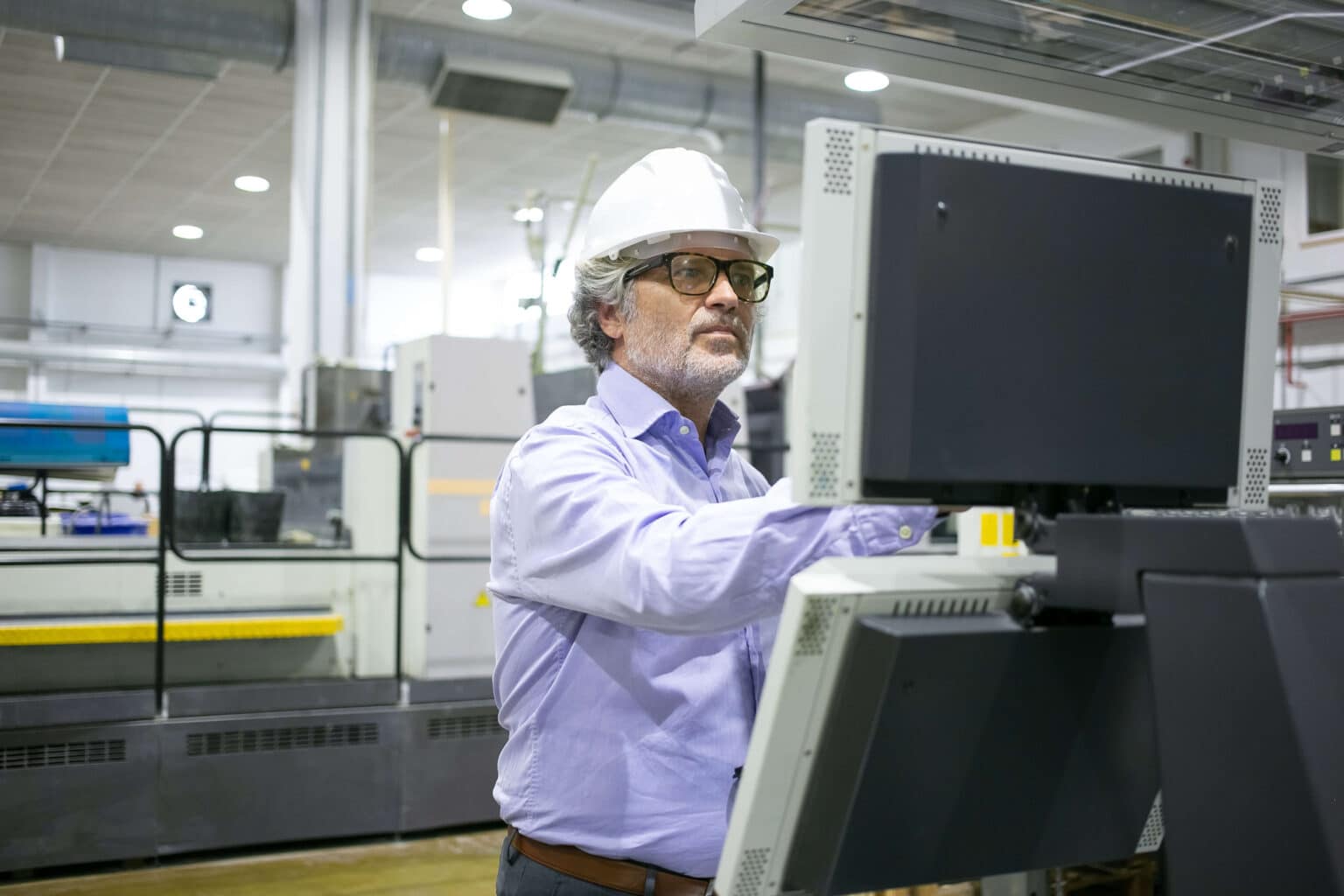
Digital transformation in the industry
Digital transformation in industry has emerged as a significant phenomenon that is reshaping the business landscape. This process involves the integration of digital technology into all operational areas, resulting in fundamental changes in how value and services are delivered. The fourth industrial revolution, or Industry 4.0, is driving this evolution by incorporating advanced technologies such as IoT, artificial intelligence and big data. Companies must adapt to this cultural shift to stay relevant and competitive in an increasingly digitized marketplace. In this article, we will explore what digital transformation in industry means, its current trends and the benefits it brings.
What is digital transformation in industry?
Digital transformation in industry refers to the process by which companies in the industrial sector adopt digital technologies to optimize their operations and business models. This change not only involves digitizing existing processes, but also rethinking how technology can be used to create new sources of revenue and improve the customer experience. Industrial digital transformation is an essential pillar for the development of new products and services, enabling companies to customize their offerings and meet market demands. As organizations collect and analyze data in real time, they can make more informed decisions that increase efficiency and improve workflow.
The importance of technology in industry lies in its ability to drive innovation and competitiveness. By integrating digital technology in all areas, companies can automate processes, optimize the supply chain and improve connectivity between devices. This not only reduces operating costs, but also provides a competitive advantage by enabling companies to respond quickly to changing market conditions. In addition, digitization facilitates data collection, which is crucial for data analysis and the creation of new business models adapted to the digital age.
What is Industry 4.0?
Industry 4.0 represents the fourth industrial revolution, characterized by the fusion of physical and digital technologies. This concept focuses on automation and data sharing in manufacturing, using cyber-physical systems, IoT and cloud computing to create smart factories. These technological advances enable companies in the industrial sector to operate more efficiently and flexibly, opening up new opportunities to customize products and optimize processes. Connectivity and real-time data analysis are fundamental to Industry 4.0, enabling companies to anticipate problems and adapt quickly to market needs.
Industry 4.0 is redefining the traditional business model by enabling the integration of advanced technologies into production and product design. The internet of things, for example, connects devices and machines, making it easier to monitor and manage industrial operations more efficiently. Artificial intelligence also plays a crucial role in this ecosystem, enabling companies to analyze large volumes of data to improve decision-making and increase operational efficiency. This shift towards full digitization is transforming the industrial sector, creating a more dynamic and competitive environment.

Digital transformation trends in industries
As we have mentioned, the digital transformation in Industry 4.0 is driven by multiple technological factors. These trends have led to a clear technological evolution in the sector.
Artificial intelligence
Artificial intelligence (AI) has become an essential component of digital transformation in industry. Through advanced algorithms and machine learning, AI enables companies to automate repetitive tasks and perform complex data analysis. This not only improves efficiency, but also frees up human resources to focus on higher-value activities. In addition, AI is able to identify patterns in large volumes of data, which helps companies predict market trends and customize their products and services. The adoption of artificial intelligence in the industrial sector is creating new opportunities for the development of innovative business models.
Big Data
Big Data is one of the most influential trends in industrial digital transformation. The ability to collect and analyze large volumes of data in real time is revolutionizing the way companies operate and make decisions. Thanks to Big Data, companies can identify patterns and trends that were previously invisible, allowing them to optimize processes and improve operational efficiency. This detailed data analysis translates into a better understanding of customer needs, enabling the customization of products and services to meet specific demands.

Cloud computing
Cloud computing is a fundamental pillar of digital transformation in the industry, providing companies with the flexibility and scalability needed to operate in a digital environment. By migrating their operations to the cloud, companies can access computing resources on demand, reducing the need for physical infrastructure and enabling faster access to information. This technology also facilitates collaboration between geographically distributed teams, improving connectivity and workflow globally.
Cybersecurity
Cybersecurity is a critical component of digital transformation in the industry, especially as companies adopt connected technologies and store more data on digital platforms. With increased digitization, cyber threats have also grown, making it essential to implement robust security measures. Data protection and privacy are now key priorities for companies seeking to maintain customer trust and protect their intellectual property.
Benefits of digital transformation
Digital transformation offers numerous benefits to companies in the industrial sector, from improving operational efficiency to creating new sources of revenue. By adopting digital technologies, companies can automate processes, reducing costs and production time. This level of automation also enables companies to optimize the quality of their products and services, improving customer satisfaction and increasing their competitiveness in the marketplace.
Some of Nortek’s systems already include displays with real-time monitoring and advanced data analysis capabilities, allowing users to optimize the performance of their operations. These integrated solutions are especially useful in complex industrial environments, where efficiency and accuracy are crucial. In addition, real-time monitoring facilitates early identification of potential problems, helping to reduce downtime and improve operational safety. Nortek systems continue to evolve every day to offer even more sophisticated functionality, adapting to changing market needs and providing customers with innovative tools for the effective management of their resources.